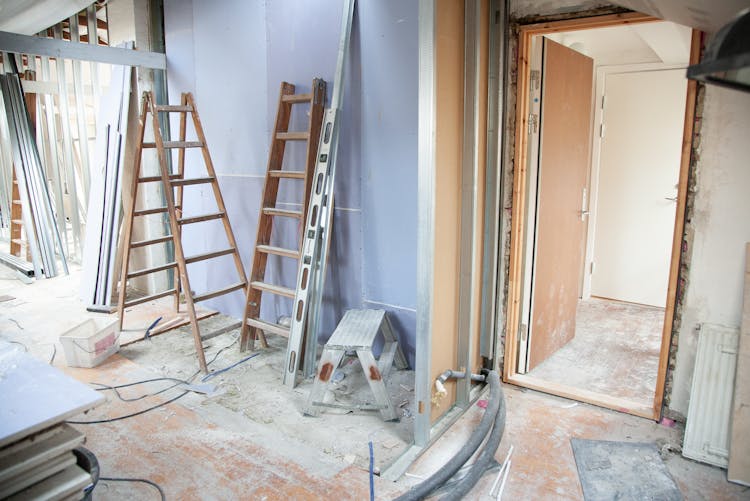Home renovation is an exciting endeavor, promising new aesthetics and improved functionality. However, it also brings various risks, including water damage. Water damage can lead to significant structural issues, mold growth, and costly repairs. Therefore, it’s important to mitigate water damage effectively. We will guide you through understanding water damage, planning before renovation, implementing preventive measures during renovation, handling unexpected incidents, and maintaining your home post-renovation to prevent future damage. Taking these precautions can lead to a smoother renovation process and safeguard your home against potential water-related issues. A proactive approach can help you avoid frustration and costly expenses, protecting your investment and providing peace of mind.
Understanding Water Damage
Water damage can manifest in several ways, including structural damage, mold and mildew growth, and electrical hazards. Water damage often arises from plumbing issues, roof leaks, or improper sealing during renovations. Identifying these risks on time helps in planning effective preventive measures. Understanding the types and causes of water damage is the first step in mitigating it. Awareness of these factors allows homeowners to safeguard their property proactively. By being informed, you can better prepare and protect your home from its detrimental effects during renovation. Knowledge of risks and prevention strategies empowers you to make better decisions throughout your renovation. Comprehensive understanding allows you to identify potential problems before they escalate, saving time and money in the long run.
Pre-Renovation Planning
Before starting any renovation, conducting a thorough inspection is vital. Inspect existing plumbing systems and the roof for potential problems. Identifying weak spots on time can save time and money later. Create a detailed renovation plan that outlines steps to mitigate water damage. Include a budget for prevention measures. Consulting with professionals is also important. Hire experienced contractors and seek advice from water damage prevention experts. Their expertise can help identify potential risks and suggest effective solutions. Proper planning enhances the renovation process and reduces the likelihood of encountering water damage issues. A well-thought-out plan can make all the difference in the success of your renovation. By addressing potential risks upfront, you create a smoother, more efficient renovation process that stays on budget and schedule.
Caption: Before starting anything, consult with professionals and hire experienced contractors to prevent and mitigate water damage issues. Alt text: A contractor in a red checkered shirt, drawing a draft on a big paper
Mitigate Water Damage: Protecting Vulnerable Areas During Renovation
Monitoring plumbing systems during renovation is vital. Ensure that new plumbing is installed correctly, and regularly check for leaks and drips. Proper drainage systems are essential for prevention. Install gutters and downspouts to direct water away from the foundation. Interior drainage solutions, like sump pumps, can also be beneficial. By focusing on these vulnerable areas, you can significantly reduce the risk of damage during your renovation. Taking the time to protect these areas can save you from potential headaches and repair costs in the future. Incorporating these measures into your renovation plan protects your home and enhances its overall resilience.
Temporarily Moving Out and Protecting Your Belongings
During a home renovation, especially when it involves extensive work and water hazards, temporarily relocating your possessions to protect them from potential water damage can be wise. To ensure your items are in good hands, consider checking Verified Movers Reviews for trustworthy moving companies that can safely store your possessions until the renovation is complete. This platform helps you find the best moving company for your specific needs through verified reviews and ratings from previous clients. Using this reliable resource will guarantee that your possessions are in good hands, allowing you to focus on the renovation process without worrying about the safety of your valuables.

Handling Unexpected Incidents
Despite all precautions, unexpected water incidents can occur. Immediate response is necessary to minimize damage. Turn off the water supply and contain the spread. Assess the extent of the damage quickly and repair it promptly. Drying and dehumidifying affected areas is the key to preventing mold growth. Use fans and dehumidifiers and remove wet materials promptly to avoid further damage. Being prepared for unexpected incidents can significantly affect the overall impact and cost of water damage. Quick action can prevent a minor incident from turning into a major disaster. An emergency plan, including contact information for reliable professionals, can expedite recovery and reduce stress during unforeseen events.
Post-Renovation Tips
Regular maintenance and inspections are vital post-renovation. Schedule checks for plumbing and roofing to ensure they are in good condition. Maintaining proper drainage systems helps in preventing water accumulation around the foundation. Long-term damage prevention strategies include using water-resistant materials for future renovations. Installing leak detection systems can provide early warnings of potential issues. Educate household members on water damage prevention to ensure everyone knows the risks and preventive measures. You can protect your home from future problems by keeping up with maintenance and being vigilant. Consistent care and attention to your home can prolong its life and maintain its value. Regular inspections and timely repairs prevent minor issues from escalating into major problems. This way, your home remains a safe and comfortable living environment.

Conclusion
Knowing how to mitigate water damage during a home renovation is very important to protect your investment. You can minimize the risks by understanding water damage, planning thoroughly, implementing preventive measures, responding swiftly to incidents, and maintaining your home post-renovation. Taking these steps protects your property and leads to a smooth and successful renovation process. Stay proactive and vigilant, and your home will remain safe and sound. Remember, the effort you put into preventing this damage today can save you significant time, money, and stress in the future. A little foresight goes a long way in safeguarding your home and its improvements. Embrace these strategies to enjoy a beautifully renovated home without worrying about water damage.


